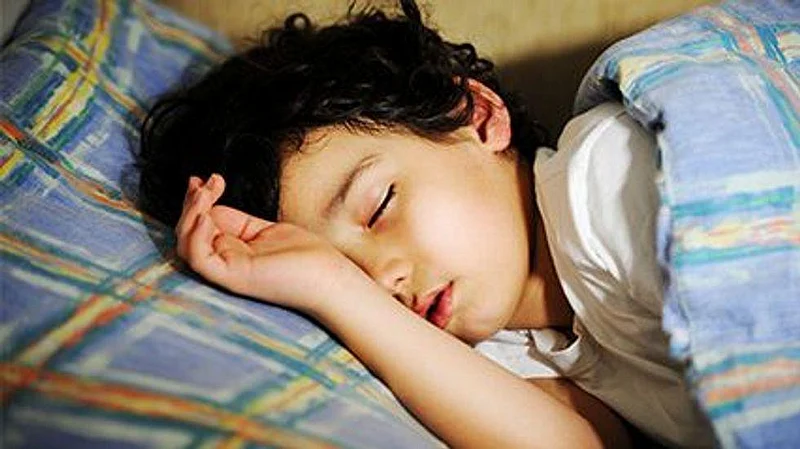Manténgase sano!

- Posted November 18, 2021
Many Kids Separated From Families at U.S. Border Suffer PTSD
Parents and children who were separated under the Trump administration's "zero tolerance" immigration policy have shown lasting psychological trauma -- even after being reunited, a new study finds.
Between 2017 and 2018, more than 5,000 children were separated from their parents at the U.S.-Mexico border under the policy, which aimed to deter asylum seekers.
The practice was denounced by human rights groups and medical experts as inhumane -- with the American Academy of Pediatrics calling it "government-sanctioned child abuse." It was ultimately overturned in the courts.
That was not the end of the story, however. As of August, more than 1,800 children remained separated from their parents, according to a task force established by the Biden administration. And the U.S. federal government is in negotiations on how to compensate families.
Now, the new study offers a snapshot of the policy's mental health fallout.
Researchers found that among 25 families separated at the border, nearly all parents and children met the criteria for a psychiatric diagnosis -- even though they'd been reunited.
Post-traumatic stress disorder, major depression and anxiety disorders (including separation anxiety in some children) were among the diagnoses delivered.
The families had experienced "compound trauma," said researcher Dr. Ranit Mishori, senior medical adviser to the nonprofit Physicians for Human Rights (PHR).
Many were victims of gang-based persecution in their home country, and fled due to violence and threats of violence. Once they made it to the U.S. border after a harrowing journey, they were confined to a detention center.
And when their children were taken away, parents were usually given no information on where they were going or whether and how they would be reunited.
It may sound unsurprising, then, that there would be psychological consequences. But there has been little hard data on these families. That, Mishori said, is because they are a difficult population for researchers to access.
The findings were published Nov. 24 in the journal PLOS One.
"This is a very important study," said Dr. Alan Shapiro, senior medical director of the community pediatrics program at Children's Hospital at Montefiore in New York City. "It's extremely important for policymakers to understand the consequences of these actions."
Shapiro, who was not involved in the research, is a co-founder of Terra Firma, a Montefiore-based program that provides health care and legal services to immigrant children and families.
As this study shows, Shapiro said, the trauma of separation does not disappear once families are reunited.
"The memory of the fear doesn't just go away," he said. And the reunion, itself, is not necessarily a smooth process, Shapiro noted: Children can be angry; parents can be guilt-ridden.
Mishori made the same point, noting that if children are quite young and the separation is long, they might not even remember their parents.
How long does recovery take? It varies and depends on many factors, Mishori said. But years of research on adverse childhood experiences shows the mental health effects can be long-lasting.
There were some signs of that in this study group.
"One 8-year-old boy was still having nightmares two years after being reunited with his parents," said co-researcher Kathryn Hampton, deputy director of PHR's Asylum Program.
She said the zero tolerance policy and its aftermath "should really cause us to look at how our immigration policies are implemented. How did we get to this, and how do we prevent it from happening again?"
Shapiro agreed. "These are families who are fleeing their home country for their lives. We should never have a policy like zero tolerance again."
The latest findings are based on records for 31 parents and children who'd been separated at the U.S.-Mexico border. All had been referred for a mental health evaluation related to a legal case -- including asylum claims, appeals or lawsuits for damages related to family separation.
Mishori, Hampton and their colleagues examined the detailed narratives written by the health care professionals who did the evaluations.
Overall, they found, 16 of 19 adults and all 12 children met the diagnostic criteria for PTSD, depression or an anxiety disorder. Many had more than one diagnosis.
According to Shapiro, families like these need access to "trauma-informed" mental health care. Finding and paying for that care, however, is a big challenge.
"Even for U.S. citizens, accessing mental health services is often difficult," Mishori noted.
The lasting mental health effects of separation, she said, should be taken into consideration in reaching a settlement with the affected families.
More information
The World Health Organization has more on refugee health.
SOURCES: Ranit Mishori, MD, senior medical advisor, Physicians for Human Rights, New York City; Kathryn Hampton, MSt, MA, deputy director, Asylum Program, Physicians for Human Rights; Alan J. Shapiro, MD, senior medical director, community pediatrics program, and co-founder, medical director, Terra Firma, Children's Hospital at Montefiore, assistant professor, pediatrics, Albert Einstein College of Medicine, New York City; PLOS One, Nov. 24, 2021, online





